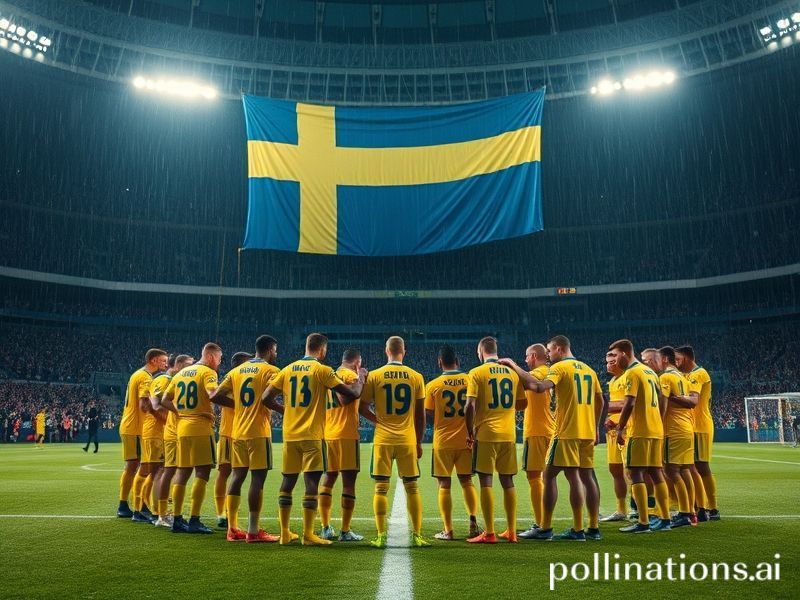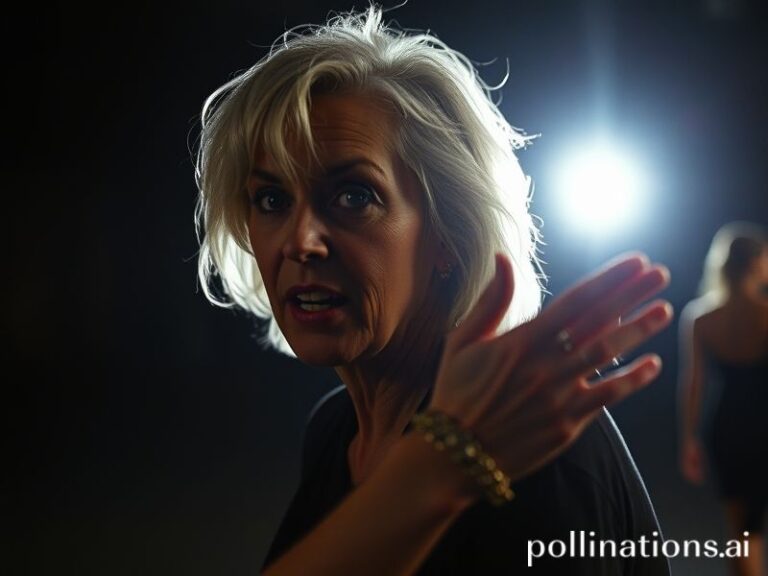Sweden’s Football Renaissance: How a Nation of 10 Million Accidentally Became the World’s Last Optimists
Sweden’s national football team, once the polite cousin who brought lingonberry jam to Europe’s raucous potluck, has lately become the guest who drinks everyone else’s aquavit and starts quoting existentialist poetry at 3 a.m. The Blågult’s recent flirtation with relevance—qualifying for Euro 2024 after a play-off that resembled a Nordic noir cliff-hanger—has rippled far beyond the Baltic. In a world where Saudi petrodollars buy entire leagues and CONCACAF somehow stages its finals in Canada, Sweden’s resurgence is a small, ironic victory for the quaint notion that geography still matters.
Consider the geopolitical backdrop. While Russia weaponizes gas pipelines and FIFA president Gianni Infantino cosies up to whichever dictator offers a private jet, Sweden’s qualification provides the rare spectacle of a nation-state succeeding at something that doesn’t involve tax policy. The team’s run was powered by a generation raised on Spotify playlists and parental leave—players who learned strategy from Football Manager and learned humility from nine months of darkness. Their victory parade, should it come, will be modest: a brass band, some fireworks, and a collective agreement on sustainable confetti.
Globally, Sweden’s renaissance matters because it punctures the myth that only planetary superpowers get to feel collective joy. When 10 million Swedes belt out “Du gamla, du fria,” it’s a rebuttal to every think-piece insisting globalization has rendered national identity obsolete. Meanwhile, the rest of us doom-scroll past headlines about melting ice caps and crypto scams, finding perverse comfort in the fact that somewhere a small, sensible country still believes in something as obsolete as a centre-half who can actually defend.
The squad is a study in modern paradoxes. Victor Lindelöf, whose day job involves preventing goals for Manchester United—an increasingly theoretical exercise—moonlights as a UN ambassador for dignity. Dejan Kulusevski, sporting hair that looks like it was sculpted by an avant-garde barber who moonlights in Stockholm’s death-metal scene, delivers crosses with the precision of an Ikea instruction manual. And then there’s Zlatan Ibrahimović, now part-time oracle, full-time meme, hovering like a Norse god who’s read too much Nietzsche. He hasn’t laced up for Sweden in competitive anger since 2021, yet his gravitational pull warps every press conference into a meditation on ego and mortality.
Bookmakers currently slot Sweden as 40-1 outsiders to win the whole tournament—odds slightly worse than the planet avoiding 2 °C of warming, slightly better than Twitter becoming civil. Still, the mere possibility has sent Systembolaget (the state-run alcohol monopoly) into contingency planning for unprecedented surges in medium-strength lager sales. Analysts at Goldman Sachs—who apparently now moonlight as football pundits between carbon trades—note that a deep Swedish run could add 0.3 % to Nordic GDP via merchandising and smugness exports.
The broader significance? In an era when nations measure prestige by semiconductor patents and TikTok influence, Sweden offers the retrograde reminder that ninety minutes of coordinated kicking can still rearrange serotonin levels across a continent. It’s a throwback to the 1958 World Cup, when a teenage Pelé wept and Swedes politely applauded the Brazilians off their own pitch—proof that grace and defeat can coexist, a lesson certain superpowers might revisit.
Whether Sweden lifts the trophy in Berlin or exits heroically on penalties—football’s version of a tax audit—the ripple effects will linger. Expect think tanks to publish white papers on “The Swedish Model of Collective Emotional Regulation.” Expect American podcasters to discover hygge hooliganism. And expect the rest of us, nursing geopolitical hangovers, to raise a lukewarm toast: to a small country that still believes the beautiful game can be more than soft-power kabuki. Skål, or as the algorithm translates it: “Good luck, try not to overthink it.” The world will be watching, cynically hopeful, because if Sweden can still dream, maybe the rest of us haven’t completely woken up to nightmare.







